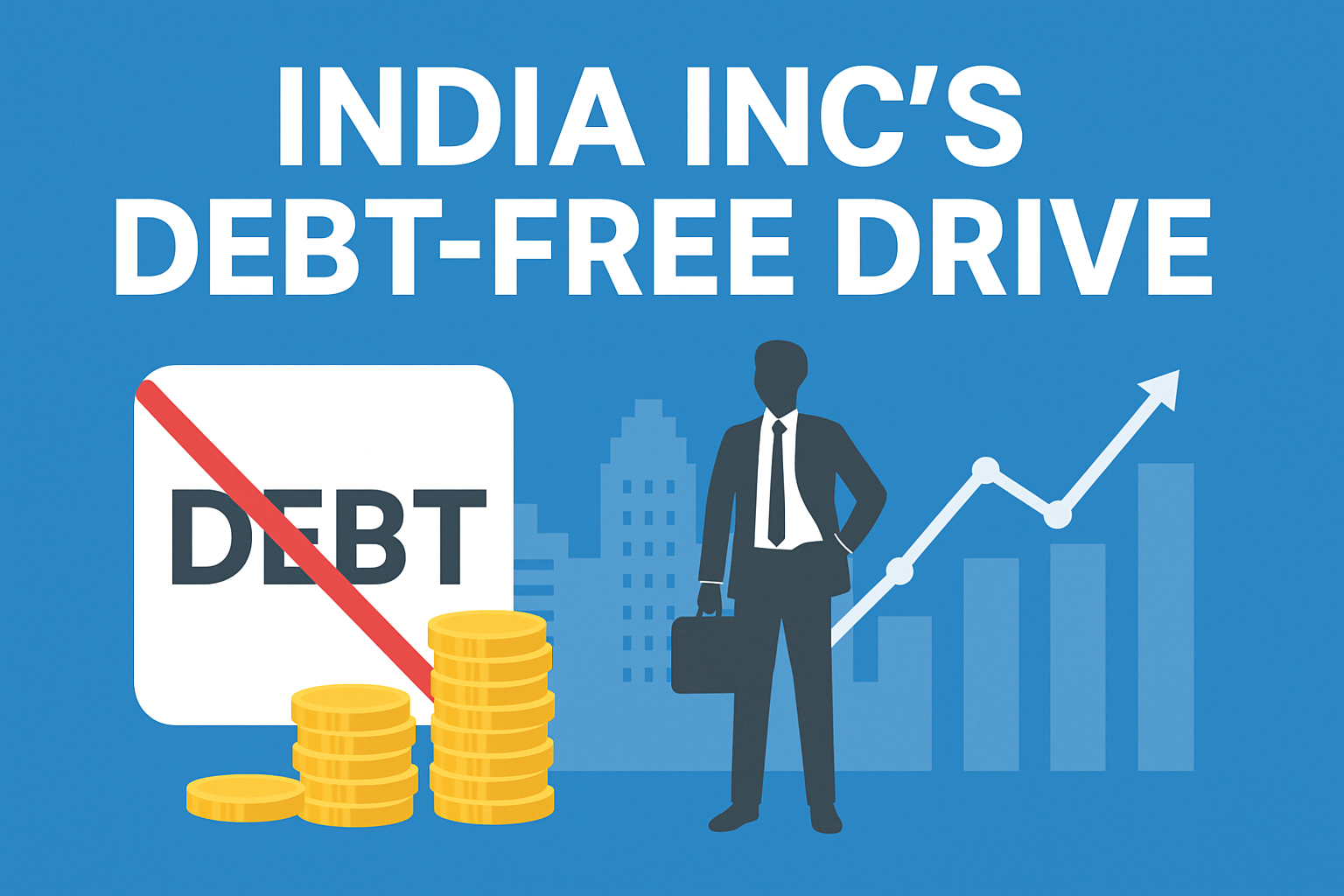Announcement: Lorem ipsum dolor sit amet, consectetur adipiscing elit. Donec et quam blandit odio sodales pharetra.
Large Indian companies are now obsessed with debt reduction
In the last few quarters, the big trend among large Indian corporates has been the urgency to reduce its debt. This is true across major business houses and the trend has only got accentuated in the post-COVID scenario. How big is this anti-debt trend and what is really driving this trend towards debt reduction?

Table of Content
Reliance, Tatas, DLF and more
The big shift towards debt reduction began with Reliance Industries declaring its intent to become zero net-debt. With a slew of private placements of its stake in Jio Platforms and Reliance Retail, RIL is well on target to becoming zero net debt. Of course, Reliance had the heft to raise funds during the pandemic and also successfully pilot the Rs.52,000 crore rights issue. But this aversion to debt is become a much larger trend. A number of very large corporates are combining capital raising and asset monetization to get out of debt, or reduce debt, in an aggressive manner.
One of the most prominent names has been DLF, which sold a significant stake in its commercial realty franchise to GIC of Singapore to become zero debt. In the Tata group, companies like Tata Motors and Tata Power have already embarked on plans to substantially cut down on their debt. In the Birla group, Ultratech recently made Rs.5,477 crore outlay to expand capacity. However, it also clarified that this outlay would not impact its current debt reduction plans.
Low debt is the new mantra
In the last few years, corporate India saw a slew of large Indian companies crumble under a pile of debt. The ADAG group was a classic example of how too much debt comes home to roost. Then there are cases like Jet Airways and Vi that ran unsustainable business models for just too long. To top it, there were financial names with large bank loans that just toppled overnight and these included the likes of IL&FS as well as Dewan Housing Finance. In each of these cases, excess debt became a drag on financial viability and liquidity. COVID only served to highlight this risk as a large number of sectors saw a virtual drying up of revenues. This has led to a positive re-rating of low debt companies with most investors gravitating towards companies where financial risk is low.
Yields will remain low
In the past, the worry was that if the companies repaid their debt, they may not get fresh debt at the same price. That is not the case any longer. Even the RBI has clarified, in no uncertain terms, that rates will remain low in the foreseeable future. That means; debt reduction is not only acceptable but it is also advisable. Low debt companies are finding it easier to attract lenders and also equity investors. In a world flush with liquidity, a good performer with low debt surely commands a premium. That is what companies are betting on!
Comments